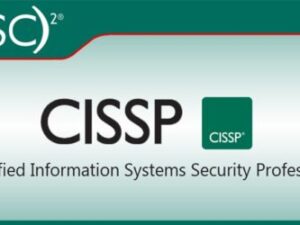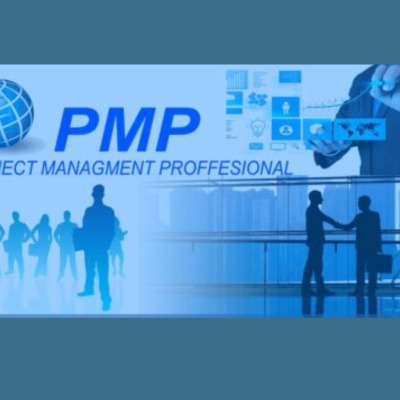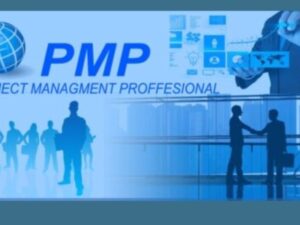About this course
About PMP
Project Management Professional (PMP) is a global credential offered by PMI Inc. PMP Certification is a globally recognized, rigorous,
Education and/or professional experience, and examination-based credential program.
It helps one understand the global language of Project Management and connect with Project Management Professionals.
PMP certified professionals earn a higher salary than those not certified.
BENEFITS
The PMP certification can help you land lucrative roles in IT,
Manufacturing, finance, healthcare, and other exciting industries.
Certified PMP’s drive better project performance and are often rewarded with substantial pay raises as shown below.
ELIGIBILITY
The PMP certification is an important professional requirement for senior project manager roles across all industries.
The course is best suited for or is beneficial for: Project Managers, Associate/Assistant Project Managers, Team Leads/Team Managers,
Project Executives/Project Engineers, software Developers, Any skilled professional aspiring to be a Project Manager.
Course Objectives:
- Gain knowledge about Project Management Institute,(PMI) best practices and standards of Project Management.
- Obtain 35 contact hours upon completion of this course, which is required to take the exam.
- Prepare further to succeed in the Project Management Professional (PMP) certification exam.
- Understand where projects fit within an Organization and its strategy.
- Focus on project benefits in addition to the traditional focus on project outputs.
- Recognize and recall formal Project Management terms and practices used in the industry globally.
- Apply formal tools and techniques to initiate, plan, execute, monitor, control & close a project.
- Apply knowledge management techniques in a project.
- Understand the internal and external factors that influences the projects such organization structures, process assets and enterprise environmental factors
- Understand Project Manager’s skills and competencies
11 .Analyse and integrate various areas of project management like scope, schedule, cost, quality, human resources, communications, risk, procurement & stakeholders
- Apply the concepts and processes of Project Integration Management
- Gain the ability to apply Agile considerations in real projects, in all the project knowledge areas
Frequently Asked Questions (FAQ) –
Q 1. How is this course relevant today?
The Project Management Professional (PMP)® certification is the gold standard for professionals in space of project management.
This credential is a globally renowned certification that’s highly valued and recognized in the field of project management.
It indicates your level of competence and expertise as a project manager who can lead and handle even the most complex projects.
Additionally, industry reports claim that professionals with PMP® certification earn 20% percent than those without the credential.
Enrolling for this course and gaining the PMP® certificate will:
* Give your career an extra boost by making you eligible for the best roles in the top companies globally.
* Enhance your versatility and expand your skillset through rigorous training and coursework.
Q 2. How does expertise in project management benefit professionals?
A Project Management Professional is entrusted with some of the core responsibilities in an enterprise.
Right from overseeing a project to using one’s skillset during the implementation and reporting stages, a PMP® is indispensable.
Expertise in project management will help you in:
Designing, organizing, executing and completing projects within the set deadlines and allocated budget.
Choosing the right resources for a project and managing them effectively
Enforcing professional and social responsibility
Finding and analysing constraints and assumptions
Ensuring control over a project through performance trackers
Predicting potential risks and charting the right approach to prevent them.
Q 3. How can I study for the PMP® certification exam?
You can study for the PMP® certification exam by reading and understanding the PMBOK® Guide.
Decide which learning mode will suit you best.
How best do you learn? Is it through reading a book, listening to a podcast, watching a video? Understand your learning style and plan your study around it.
Studying for a certification exam requires partnership. Study in groups and learn from the contribution of others.
You need to familiarize yourself with the lexicon of project management as used in the PMBOK® Guide.
You can also take a PMP® prep exam or register for an online practice test and quizzes.
Q 4. What is the PMI®?
The Project Management Institute (PMI)® is a certification body and a non-profit membership association.
PMI offers different project management certifications ranging from PMP®, CAPM® and several other top-level certifications that focus on project management, portfolio management, agile practices, risk management, business analysis, and scheduling.
The PMP® is the most in-demand certification in project management.
Q 5. What is the PMBOK® Guide in project management?
The PMBOK® Guide stands for Project Management Body of Knowledge.
It is a guide that contains the processes, best practices, terminologies and acceptable guidelines in the project management field.
The PMBOK® Guide is normally updated within 4-5 years to reflect new ideas, ideologies, trends and best practices in the project management industry. It helps project managers to create a workable standard across companies. The first edition was published in 1996.
It is now on the sixth edition which was released in September 2017.
Q 6. Which is the latest edition of the PMBOK® Guide?
The PMBOK® Guide (Project Management Body of Knowledge) is the examination textbook published by the Project Management Institute for the PMP® exam.
The latest edition of the PMBOK® Guide is the sixth edition, and it was released in September 2017.
The PMI releases an updated version of the PMBOK® Guide every 4 to 5 years.
This also implies that the PMP® exam has also been updated.
Q 7. Do you need a degree to be a project manager?
You do not need a degree to become a project manager.
A Diploma in Building and Construction (Management) with extensive experience in the construction industry, for instance, qualifies you to become a project manager without a degree in the construction space.
However, it becomes necessary to own a degree if you are planning to manage and direct complex projects and lead teams.
You can then earn a bachelor’s or master’s degree or a professional certificate.
Q 8. What does PMP® stand for & what do you mean by the PMP® designation?
PMP® is an acronym for Project Management Professional.
It’s the certification offered by Project Management Institute (PMI)® to professionals who clear the PMP® exam.
This credential is a globally renowned certification that’s highly valued and recognized in the field of project management.
It indicates your level of competence and expertise as a project manager who can lead and handle even the most complex projects.
Additionally, industry reports claim that professionals with PMP® certification earn 20% percent than those without the credential.









Reviews
There are no reviews yet.